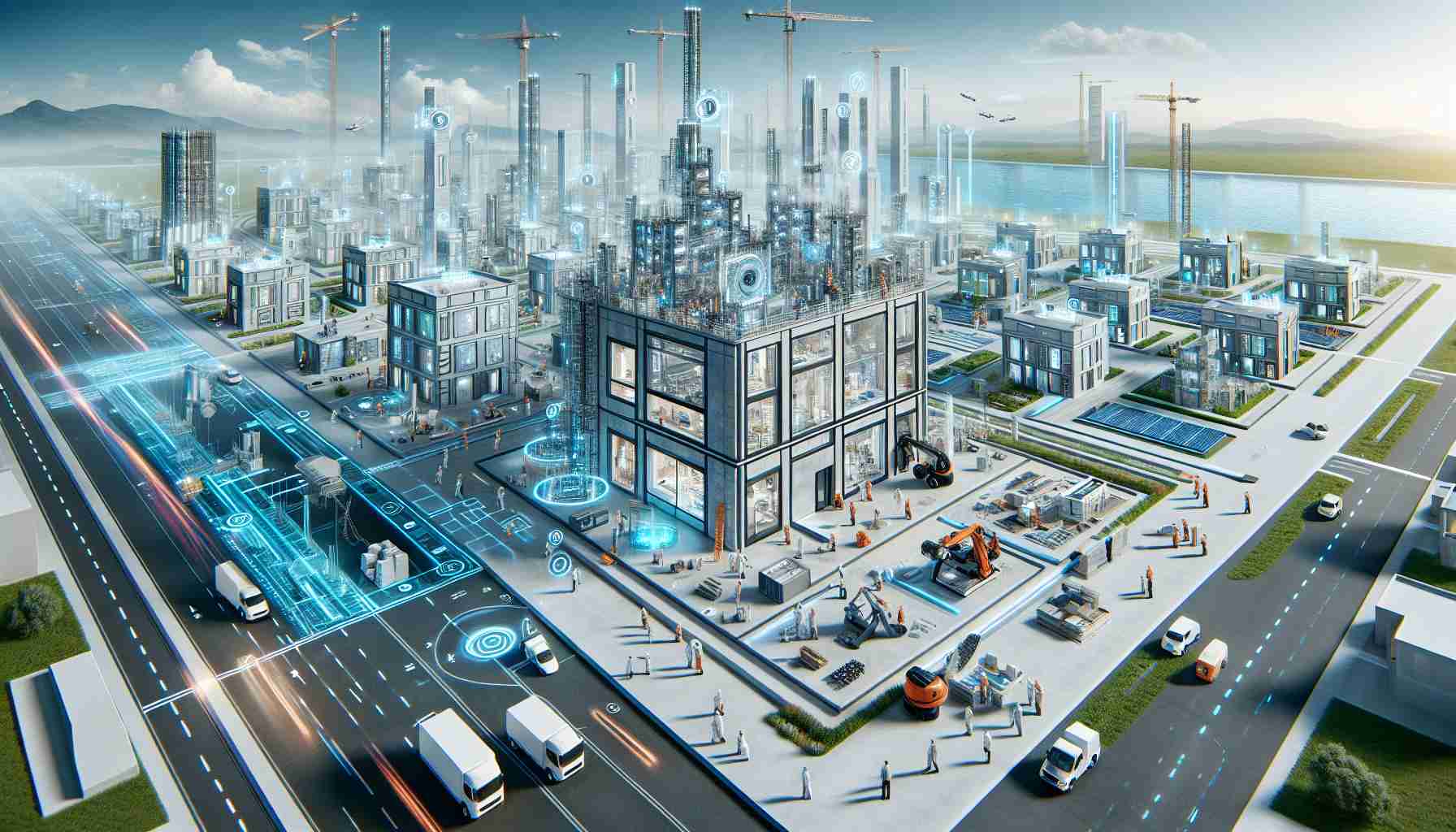- Western Macedonia is undergoing a green transformation, driven by a €5.75 billion investment from the Greek Public Power Corporation (PPC).
- A 300-megawatt data center will replace the old Agios Dimitrios plant, starting operations in 2027, with potential scalability to 1,000 megawatts.
- PPC plans to invest €1.2 billion in solar parks generating 2,130 megawatts, revitalizing former coal mining areas.
- An additional €940 million is allocated for energy storage, enhancing the infrastructure’s reliability.
- Ptolemaida 5 will transform from a lignite-fired unit to a 350-megawatt natural gas unit by 2027, with aspirations to expand to 500 megawatts.
- PPC will lead Greece’s first large-scale green hydrogen project in Amyntaio.
- The investment plan is expected to create 20,000 construction jobs and 2,000 permanent positions, fostering local economic growth.
- Prime Minister Mitsotakis describes PPC as a “national champion,” embodying Greece’s leadership in sustainable development.
The landscape of Western Macedonia, known for its enduring relationship with coal, is poised for a monumental transformation. The Public Power Corporation (PPC) of Greece has unveiled an audacious plan to invest €5.75 billion in redefining the region as a beacon of green energy and technological innovation, positioning Greece as a leader in sustainable development within southeastern Europe.
Imagine a sprawling 300-megawatt data center rising from the site of the old Agios Dimitrios power plant, a symbol of the future nestled in the heart of the past. Scheduled to be operational by 2027, this behemoth of digital infrastructure is set to be among the largest in Europe. Its potential scalability to 1,000 megawatts underscores the ambition of this project—ready to adapt and expand alongside growing demands.
Envision sunlit former mining areas in Western Macedonia glistening with rows upon rows of solar panels, collectively generating a staggering 2,130 megawatts of renewable energy. The investment of €1.2 billion into these solar parks signifies a profound pivot towards sustainability, breathing new life into the land once dominated by coal mining.
To complement this solar renaissance, PPC plans to channel an additional €940 million into cutting-edge energy storage solutions, capable of holding 860 megawatts. This ensures a robust, reliable power supply that meets the needs of modern infrastructures and communities alike.
The Ptolemaida 5 plant marks the evolution of energy sources, transitioning from lignite-fired to a 350-megawatt open-cycle natural gas unit by 2027, with aspirations of becoming a 500-megawatt combined-cycle gas facility. This progression reflects a strategic alignment with the growing emphasis on cleaner energy alternatives.
Boldest of all is PPC’s venture into the realm of green hydrogen. In Amyntaio, Greece’s first industrial-scale facility will emerge, a testament to cutting-edge innovation through the Hellenic Hydrogen joint venture. This step heralds a new era of sustainable fuel production, offering a glimpse into a future where hydrogen fuels industries and homes alike.
The implications of this ambitious investment plan extend beyond environmental stewardship. As many as 20,000 jobs are projected to blossom during the construction phase, with 2,000 more anticipated upon operation. Such economic revitalization promises to fortify local communities, fostering growth and resilience in an evolving global landscape.
Prime Minister Kyriakos Mitsotakis aptly described PPC as a “national champion,” lauding the plan’s vision and ambition—a testament to Greece’s capability to blend national strengths with European financial support to forge a sustainable future. The blueprint not only embodies a transformation of the regional energy landscape but also symbolizes a broader commitment to addressing global climate challenges.
This overarching narrative of transition and renewal delivers a clear message: Greece is not just witnessing a change; it’s leading one. By embracing green energy and technology, Western Macedonia is on the cusp of a revolution that is as much about the future of the planet as it is about redefining Greece’s place in the world.
Greece’s Green Revolution: What You Need to Know About Western Macedonia’s Transformation
Transformational Energy Projects in Western Macedonia
The landscape of Western Macedonia, a region historically tied to coal production, is undergoing a transformative shift towards sustainable energy. The Public Power Corporation (PPC) of Greece has announced a groundbreaking €5.75 billion investment plan to reinvent the area as a hub for green energy and technological innovation, solidifying Greece’s role as a leader in sustainable development in southeastern Europe. This transformation offers intriguing possibilities and some challenges to consider.
New Developments in Renewable Energy
– Massive Data Center Initiative: By 2027, the former site of the Agios Dimitrios power plant will be home to a 300-megawatt data center, scalable to 1,000 megawatts. This center will be one of Europe’s largest, focusing on leveraging digital infrastructure.
– Solar Power Surge: Investment of €1.2 billion will go into developing solar parks capable of producing 2,130 megawatts. These parks are set to transform old mining areas into renewable energy sites.
– Energy Storage Expansion: PPC plans to invest €940 million in energy storage solutions, aiming for a 860-megawatt capacity. This ensures a continuous power supply vital for modern infrastructure demands.
– Transition from Coal to Gas: The Ptolemaida 5 plant will evolve to a 350-megawatt natural gas unit by 2027, eventually expanding to a 500-megawatt combined-cycle gas facility. This reflects a commitment to cleaner, efficient energy sources.
– Green Hydrogen Production: Greece’s first industrial-scale green hydrogen facility will launch in Amyntaio through the Hellenic Hydrogen joint venture. This facility marks a significant step toward adopting hydrogen as a sustainable fuel.
Job Creation and Economic Impact
As Western Macedonia transitions to green energy, the economic impact cannot be overlooked:
– Job Opportunities: The construction phase alone is expected to create 20,000 jobs. Upon completion, 2,000 permanent positions will further sustain the local economy.
– Community Revitalization: This massive shift will drive economic growth, enhancing community resilience and stability.
Challenges and Considerations
While the potential benefits are vast, several challenges deserve attention:
– Tech and Skill Demand: A shift to green energy and technology may require new skills and training for the workforce, necessitating robust vocational programs.
– Environmental Concerns: While greener than coal, natural gas plants still contribute to emissions. Ensuring the cleanest technology and practices will be essential for minimizing environmental impact.
Actionable Recommendations and Quick Tips
1. Stakeholder Engagement: Communities should actively engage with stakeholders to ensure local needs and perspectives are incorporated.
2. Education Programs: Developing educational initiatives focused on green technologies can empower the local workforce to fill new job roles.
3. Sustainability Practices: Emphasizing best practices in energy production and storage will ensure long-term environmental benefits.
Future Predictions and Insights
Western Macedonia’s transformation represents more than a regional change; it’s part of a global movement embracing sustainable energy solutions. This position boosts Greece’s credibility in tackling climate issues and sets a model for others in the region to follow.
For more insights into Greece’s sustainable initiatives, visit the Public Power Corporation.
In conclusion, Greece’s Western Macedonia transformation is an inspiring step forward that offers lessons of ambition and sustainability with global significance.









